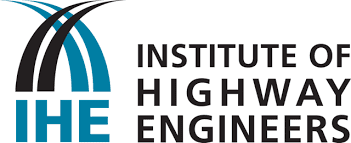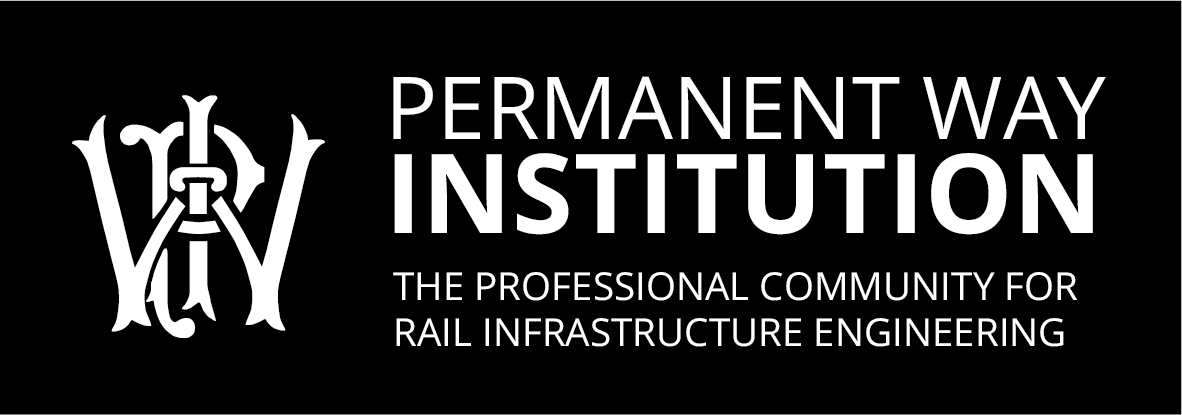
Hydrology and Water Resources Management
Discover the theoretical background and practical design considerations of hydrology and water resources management.
Explore the theoretical background and practical design considerations of hydrology and water resources management
Get industry recognition by achieving an accredited degree from the Joint Board of Moderators
Take part in informative field trips and work on global hydrological challenges
Course key facts
-
Qualification
-
MSc
-
-
Duration
1 year
-
Start date
September 2025
-
Study mode
Full-time
-
Fees
£18,500 Home
£42,900 Overseas
-
Delivered by
-
Location
-
South Kensington
-
Minimum entry standard
-
2:1 in Civil Engineering, Natural Sciences, Earth Sciences or other numerate subject
Course overview
Understand the modern day challenges facing hydrologists on this one-year, multidisciplinary Master's course.
Hydrology explores the natural distribution of water in time and space. On this course, you'll evaluate the impact of manmade changes on the distribution and quality of this water.
While hydrology has traditionally been concerned with floods and water resources, experts are increasingly focused on the problems of pollutant transport, as well as wider issues such as climate change.
This course will deepen your theoretical and practical knowledge of hydrology, which encompasses the physical and life sciences, mathematical sciences, and systems analysis.
You'll also enhance your understanding of water resources management through practical field visits, and carry out an individual research project in an area of your choice.
Structure
This page is updated regularly to reflect the latest version of the curriculum. However, this information is subject to change.
Find out more about potential course changes.
Please note: it may not always be possible to take specific combinations of modules due to timetabling conflicts. For confirmation, please check with the relevant department.
You’ll take all of these core modules.
Core modules
Explore the principles of fluid mechanics and hydraulics and learn how to apply those theories to practical application in river and environmental engineering.
Assess key concepts in hydrogeology related to the movement, storage and quality of groundwater and derive models to explain the behaviour of groundwater.
Become familiar with the atmospheric processes which govern the earth’s climate and which control the surface water fluxes of the hydrological cycle.
Analyse the effects of urbanisation on the hydrological cycle and learn how to apply basic methods of hydrological analysis.
Learn the fundamental theory needed to describe, quantify and model the storage and movement of water on and within the land surface.
Acquire a mathematical foundation for environmental data analysis and the computational skills required to perform numerical modelling and data analysis.
Understand the problems associated with contaminated land that have arisen from the unmanaged release of pollutants into the environment.
Gain a thorough understanding of the various modelling approaches for simulating river runoff and pluvial flood risk.
Engage with water quality issues and uncover the basic concepts of surface water quality assessment, modelling and engineering.
Gain insights into the inter-relationships between water, health and food security and explore how these inter-relationships can be managed effectively.
Explore the statistical methods used to generate data for hydrological design and simulation and the optimal use of available data in the management of water resources systems.
Work in a group on two practical hydrological problems where you'll apply concepts and theory previously covered on the course.
Undertake a specific piece of independent research in the form of a critical review, laboratory- or field-based experimental investigation, modelling/numerical analysis project, or a design-related project.
Improve your technical, research and communication skills and produce a written research paper and a visual poster.
Professional accreditation
This MSc degree is accredited on behalf of the Engineering Council by the Joint Board of Moderators (JBM), comprising:
- Institution of Civil Engineers
- Institution of Structural Engineers
- Institute of Highway Engineers
- Chartered Institution of Highways and Transportation
- Permanent Way Institution
This degree is recognised as meeting the requirements for Further Learning for a Chartered Engineer (CEng) for candidates who have already acquired a partial CEng accredited undergraduate first degree**.
Registering as a Chartered Engineer will improve your career prospects and provide higher earning potential. It will also help to demonstrate your commitment to professional standards, the engineering profession and sustainable development.
Our accreditation agreement with members of the Joint Board of Moderators is renewed every five years. The current accreditation agreement is due to be renewed in 2026.
**Candidates completing the MSc who hold an underpinning accredited IEng degree or a non-accredited Bachelor's degree will need to apply for an academic assessment to determine whether they will meet the educational base for CEng registration.
Teaching and assessment
Teaching and learning methods
-
Lectures
-
Tutorials
-
Seminars and workshops
-
Computing labs
-
Group work
-
Design projects
-
Individual research project
-
Virtual learning environment
-
Field data collection and overseas research
-
Site visits
Balance of assessment
Key
- Coursework
- Examinations
- 49% Coursework
- 51% Examinations
Assessment methods
-
Coursework
-
Group projects and presentations
-
Research dissertation
-
Research poster
-
Laboratory practicals
-
Written exams
Entry requirements
We consider all applicants on an individual basis, welcoming students from all over the world.
How to apply
Apply online
You can submit one application form per year of entry. You can choose up to two courses.
Application deadlines – Round 1 closes on Thursday 16 January 2025
We operate a staged admissions process with several application rounds throughout the year.
Apply by 23.59 (UK time) on the closing date of an application round, to ensure you receive a response on your application by the relevant decision date.
Application rounds
Round 1
- Applications open on Friday 27 September 2024
- Applications close on Thursday 16 January 2025
- Decision by Thursday 6 March 2025
Round 2
- Applications open on Friday 17 January 2025
- Applications close on Thursday 27 March 2025
- Decision by Thursday 1 May 2025
Round 3
- Applications open on Friday 28 March 2025
- Applications close on Thursday 15 May 2025
- Decision by Thursday 17 July 2025
There is no application fee for MRes courses, Postgraduate Certificates, Postgraduate Diplomas, or courses such as PhDs and EngDs.
If you are applying for a taught Master’s course, you will need to pay an application fee before submitting your application.
The fee applies per application and not per course.
- £80 for all taught Master's applications, excluding those to the Imperial College Business School.
- £100 for all MSc applications to the Imperial College Business School.
- £150 for all MBA applications to the Imperial College Business School.
If you are facing financial hardship and are unable to pay the application fee, we encourage you to apply for our application fee waiver.
Find out more about how to apply for a Master's course, including references and personal statements.
An ATAS certificate is not required for students applying for this course.
Tuition fees
Home fee
2025 entry
£18,500
Fees are charged by year of entry to the College and not year of study.
You should expect and budget for your fees to increase each year.
Your fee is based on the year you enter the university, not your year of study. This means that if you repeat a year or resume your studies after an interruption, your fees will only increase by the amount linked to inflation.
Find out more about our tuition fees payment terms, including how inflationary increases are applied to your tuition fees in subsequent years of study.
Whether you pay the Home or Overseas fee depends on your fee status. This is assessed based on UK Government legislation and includes things like where you live and your nationality or residency status. Find out how we assess your fee status.
If you're a UK national, or EU national with settled or pre-settled status under the EU Settlement Scheme, you may be able to apply for a Postgraduate Master’s Loan from the UK government, if you meet certain criteria.
For courses starting on or after 1 August 2024, the maximum amount is £12,471.
The loan is not means-tested and you can choose whether to put it towards your tuition fees or living costs.
Overseas fee
2025 entry
£42,900
Fees are charged by year of entry to the College and not year of study.
You should expect and budget for your fees to increase each year.
Your fee is based on the year you enter the university, not your year of study. This means that if you repeat a year or resume your studies after an interruption, your fees will only increase by the amount linked to inflation.
Find out more about our tuition fees payment terms, including how inflationary increases are applied to your tuition fees in subsequent years of study.
Whether you pay the Home or Overseas fee depends on your fee status. This is assessed based on UK Government legislation and includes things like where you live and your nationality or residency status. Find out how we assess your fee status.
If you're a UK national, or EU national with settled or pre-settled status under the EU Settlement Scheme, you may be able to apply for a Postgraduate Master’s Loan from the UK government, if you meet certain criteria.
For courses starting on or after 1 August 2024, the maximum amount is £12,471.
The loan is not means-tested and you can choose whether to put it towards your tuition fees or living costs.
How will studying at Imperial help my career?
Gain transferable skills relevant to a career in hydrology and water resources management or similar fields.
Develop your communication, leadership, and interpersonal skills as well as your technical knowledge.
Our graduates often pursue further study in master's programs or doctoral research.
Apply your specialist knowledge to a career in academics or industry.
Common employment areas include hydrology, hydrogeology, and physics.
Other potential career paths include statistics, systems engineering, business, consultancy and government.
Further links
Contact the department
- Telephone: +44(0) 20 7594 5932
- Email: cvpgo@imperial.ac.uk
Course Director: Dr Adrian P Butler
Visit the Department of Civil and Environmental Engineering website.

Request info
Find out more about studying at Imperial. Receive updates about life in our community, including event invites and download our latest Study guide.

Events, tasters and talks
Meet us and find out more about studying at Imperial.

Terms and conditions
There are some important pieces of information you should be aware of when applying to Imperial. These include key information about your tuition fees, funding, visas, accommodation and more.
You can find further information about your course, including degree classifications, regulations, progression and awards in the programme specification for your course.
Programme specifications



